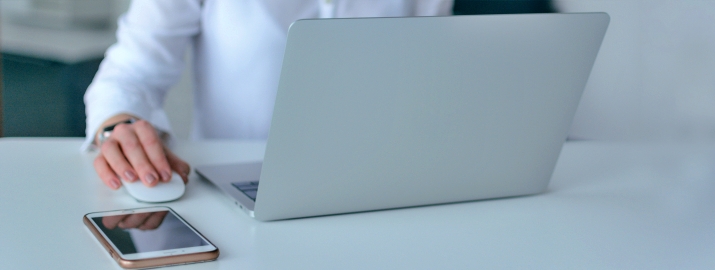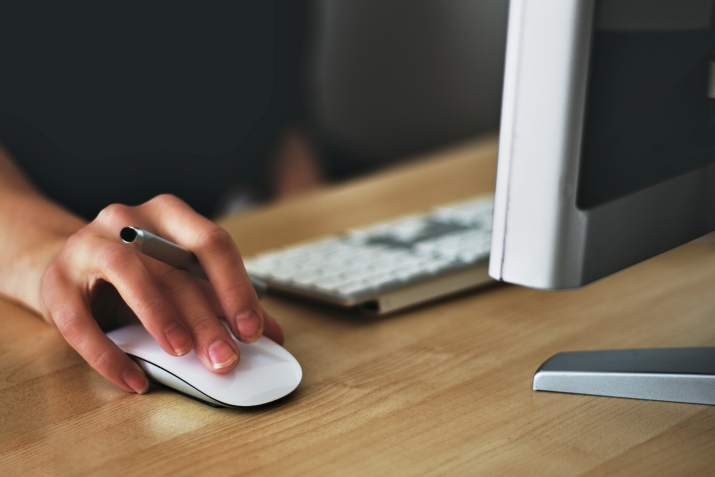
Remote Interviews
Table of Contents
After completing all the steps to a job application, preparing a nice CV, and passing the tests, the next step is the most important one: the job interview. Remote job interviews are not completely different from face-to-face job meetings. So, if you already have interview experience, they’ll relieve you. After all, the aim is again the same: to prove yourself to the employer. At this point, you’re trying to get to know the company.
But of course, it’s not the same as a face-to-face job interview. The remote interview has several differences from a face-to-face interview.
From some perspectives, maybe you find comfort in face-to-face interviews, but in some ways, remote interviews could be easier than face-to-face ones.
It’s useful to know some tips to achieve success in remote interviews. We’ll try to help you with this article.
Challenges of Remote Interviews
Several challenges distinguish remote interviews from face-to-face ones. It’s hard to fight them without knowing them. Therefore, we’ll mention these challenges before moving on to the tips for the interview.
Not Being Able To Use Body Language Sufficiently
One of the biggest challenges that distinguish remote interviews from face-to-face interviews is not benefiting from your body language enough. Since you’ll be in an online meeting, your body language will be limited. One of the things that enable people to express themselves best in face-to-face interviews is body language.
As a candidate, your stance, eye contact, your clothes (as a whole), your hand movements, etc. will not play a role as crucial as they play in face-to-face interviews. You need to find new ways to express your self-confidence to the employer! Your wise words would be your best friend in an online interview!
Establishing Intimacy
Establishing intimacy may be difficult for you in an online interview because of limited body expressions. Since you’ll have limited communication with the people you’ll interview, it’ll be a little more difficult to establish a close relationship with them.
Establishing intimacy is also difficult in face-to-face interviews because you do not know the people you are talking to. We cannot deny that there is always this risk when you are with people you don’t meet face to face. However, it could be a little more challenging in remote interviews. Since they’ll see your smile and facial expressions via a webcam, you’ll have to make an extra effort to try to prove yourself to them.
Failure To Understand the Company Culture
You do not need to start working in a company to learn its culture. You can learn something before the interview if you really want to get that job. We can say that face-to-face interviews provide candidates with this opportunity. When you step inside the company, you instantly learn something about the culture company culture, and you can act accordingly in the interview.
However, this situation gets into some trouble in remote interviews. This is one of the biggest challenges of remote interviews, as you cannot be physically present in that environment, and the people who welcome you will not be directly in front of you. However, it is not the end of the world at the end of the day All you need to do is to research the company. You can use the internet, or you can talk to people who worked there before.
Experiencing Technical Problems
Finally, technical problems may be the most terrifying experience for a remote interview. Slow internet connection, trouble with equipment (like headphones), low-quality sound, freezing webcam…These are all setbacks that can happen in remote interviews.
Since face-to-face meetings are quite traditional, there is no room for such problems. However, it’s necessary to pay attention to these in remote meetings. The only problem that can be experienced in this sense in a face-to-face meeting may be not being able to find the office. However, more than one setback may occur in online meetings. For example, when there is confusion regarding meeting time, you may have problems because there is no person you can communicate with face to face at that moment. To avoid these problems, you need to prepare well in advance.

Remote Interview Tips
Before the Interview
1. Choose Your Place
One of the most important points about online interviews is where you are during the interview. It doesn’t matter if it’s a phone call or a video call. The important thing is to be in a place where you won’t be distracted. For example, no one wants human noise from the background.
Therefore, you need to choose a place where you’ll not be interrupted. That alone may be enough for a phone call. But, you’ll need other things for the video call to look professional.
2. Practice
We’ve talked about technical problems that may occur in remote interviews. It would be a wise move to practice beforehand to detect these problems. For example, you can test your internet connection in this way. How long does it take to connect to a Zoom meeting? If it takes longer than you expect, you will have a chance to know in advance.
You can ask a friend or family member for help with this. In this way, you can identify technical problems, and you can do a study on stress management by conducting a small interview practice with your friends or family members.
3. Create a Home Office
If you already have it, it doesn’t apply to you. But if you don’t have an office at home, create one. This will make you look professional during the meeting. Because it’ll show that there is a space to work in your home. This means that you’re strict and meticulous about your work. This means that you’re not distracted by things like TV while working.
If you don’t have an extra room at home to create a home office, no worries. Any corner at home can work as a home office. For example, you can dedicate a quiet corner in your living room to this. The important thing is to have a spot that won’t distract you.
When It’s Time To Go
It’s perfectly normal to be nervous when little time is left for an interview. So, what to do in these moments?
1. Make Sure Everything Is Ready
Make sure everything is ready at least 10 minutes before the interview time. This includes yourself! You don’t want to have to rush to look for anything during a remote interview.
It’s a good idea to get on Zoom, or where the meeting is, a little early. This way you can thoroughly control your preparations. If there are tactics you’ve prepared to relax before the interview, you’ll have time to apply them as well.
2. Check Your Appearance
It can be difficult to control your look in video chat. You may forget to look at the computer camera. Therefore, it would be good to be prepared for this a little before the meeting time.
For this, you can try something like that: You can remind yourself to look at the screen during the interview by placing a piece of paper just under the computer camera. You can have peace of mind about this because the good thing is that people around you will not be able to see this paper.
3. Have the Necessary Documents With You
Your computer will be at hand, but it can be difficult and stressful for you to look at something and give information during the interview. It also has a risky side. For example, let’s say you shared the screen and tried to show something, there is no guarantee that there is no YouTube video accidentally left open in the background.
For this reason, sometimes it’s necessary not to stray from traditional methods. It’s a good idea to keep any documents with you during the interview. Also, if you need to take notes during the interview, you can write them down in small notes. That way, you don’t create keyboard noise.

During the Interview
Now that you’re ready for the interview, what do you do during the interview?
1. Show That You Understand Everything
One of the most important things, when the interview starts for the employer, is that you have a good understanding of the job description offered to you. Because in a sense, it means you’re doing your first job and makes your employer trust you. They expect the job applicant to truly understand the job.
You’ve already practiced this. You know what the company is like its culture, etc. You’re also clear about what’s expected from you. It’s your turn to tell them confidently.
2. Focus
It may seem cliche, but it’s essential to focus during the interview. Losing your attention can mean missing important questions or information. So, every second during the interview is very important.
You should also be careful about this, as it’s more difficult to keep the focus steady during online interviews than in face-to-face meetings. For example, you need to make sure that you’re listening carefully to the person speaking at the time and make that person feel it as well. For example, you can make him/her feel that you approve of him/her with your eyes. Always stay in the conversation.
3. Show That You’re Accessible
It’s almost the key point for a candidate to show that you’re reachable, especially in a remote interview. At this point, it’s very important to market yourself. You have to prove that you’re a safe person. Show your colleagues that you’ll always be available during working hours.
For this, you can highlight the things you’re sensitive to. For example, you could say that you’re aware of how lousy miscommunication is at work. If you’re using the STAR method in your daily life, you mention this as it’ll be a big plus.
Tips for Employers
Remote interviews, which have become increasingly common after the pandemic, create challenges for employers as well as candidates. After all, we’re trying to get used to something new. Moreover, many employers start to prefer remote interviews because it increases the candidate pool. So, there are several tips for employers for remote interviews…
Find the Suitable Platform
One of the most important things that affect the remote interview process is the platform you’ll use for the interview. It creates a key point. The platform must be useful. Moreover, a different platform may be appropriate for each company’s needs. There are some questions to be asked at this point. For example, do you interview candidates by phone or by video method? First of all, you need to find a method that fits your need.
For example, if you're going to make a video call, you need to provide the candidate with an application that allows screen sharing. Because the candidate may have something important to show you during the interview and you don’t want to miss it just because it’s online.
Decide Which Questions To Ask
In addition to the questions normally asked in face-to-face interviews, determine which questions you’ll ask. These questions need to allow you to get to know the candidate well.
For this, you can ask the candidate various questions. We have a few suggestions for you: For example, under what conditions do you feel productive? What’s your daily routine? When do you think you perform best? With such questions, you can both get to know the candidate and get tips on remote work performance.
Remote Interviewing: Conclusion
When the interview process is over, give yourself time to rest and relax. After all, you’ve survived a very stressful process and if you still feel nervous, this is normal. Get some rest and do what works for you. For example, go to your favorite coffee shop and try to sip your coffee without thinking about anything. Or, take a nice shower, whatever feels good to you!
Although remote interviews have the same tension and are even a little more challenging than face-to-face interviews, one of the best parts is that it saves you time. For example, once the interview is over, you won’t have to drive to get home. You can take a deep breath in your favorite chair!
In this article, we’ve tried to present tips that will relax you and increase your success and chances in the interview. We hope they’re useful and helpful to you. Good luck!
Related Articles
Frequently Asked Questions About Remote Interviewing
What are the benefits of a remote job interview?
A remote job interview offers a range of benefits for both the interviewer and the interviewee. For the interviewer, remote interviews can save time and money by eliminating the need to travel to an in-person interview. With remote interviews, they also have access to a global talent pool, as individuals anywhere in the world can be interviewed as long as they have access to the internet or phone. As such, employers can find candidates that are not only more qualified but also more cost-effective due to their location.
For the interviewee, remote interviews eliminate the stress of having to travel for an in-person interview. They also reduce the need for costly business attire and associated expenses with attending an in-person interview like transportation costs or childcare costs. Furthermore, remote interviews provide a more comfortable environment which can help alleviate anxiety and make it easier for them to focus on answering questions accurately and thoroughly.
Additionally, remote interviewing provides a more efficient process since many of them are conducted online via video conference software or virtual hiring platforms. This helps speed up overall recruitment processes by eliminating unnecessary back-and-forth communication about scheduling and other logistics that accompany traditional in-person interviews. It also allows recruiters to narrow their candidate pool faster since they can review recordings from multiple sessions all at once instead of having to remember impressions from each individual interaction when conducting several in-person interviews one after another.
Overall, there is no doubt that remote interviewing offers a variety of benefits for both employers and job candidates alike—from increasing efficiency during recruitment processes and expanding talent pools globally to reducing stress levels, saving time and money on travel expenses, creating a more comfortable environment for everyone involved, as well as allowing recruiters to make better decisions quickly based on multiple interactions at once.
What are the challenges of a remote interview process?
One of the biggest challenges of remote interviews is that communication can be more difficult without being face-to-face. It’s important to ensure you have a reliable internet connection and technical setup to make sure both parties can hear and see each other clearly, as any technical issues can affect the flow of conversation. Additionally, building rapport with the interviewer is more difficult when communicating remotely, as there are no visual cues or body language to pick up on. This is especially true for those who aren’t used to talking over video chat or online platforms. Furthermore, remote interviews often lack the spontaneity and flexibility of in-person conversations, making it harder for candidates to think on their feet and respond quickly. Some interviewers might be more hesitant to ask follow-up questions as well due to concerns about maxing out allotted time or not having enough time for other questions. All these factors combined can make remote interviews significantly more challenging than in-person ones.
Furthermore, because remote interviews don’t always allow for cultural nuances such as dress codes and small talk, it’s important that all participants understand what is expected of them during the session. For example, while some cultures may expect candidates to wear formal clothes during an interview, others may prefer casual attire even if it’s done remotely – understanding this difference ahead of time will save everyone involved valuable time and energy. Additionally, understanding differences in etiquette regarding video communication such as addressing someone by name versus title or gestures like waving hello/goodbye at the beginning/end of an interview are key considerations when conducting a successful remote interview. Finally, distractions caused by pets/children or unexpected background noise can be hard to manage in a virtual setting – so it’s important for both parties to take steps ahead of time to minimize potential interruptions during their session together.
How can an interviewee prepare for a remote job interview?
When preparing for a remote interview, it is important to take the time to ensure that you have all the necessary equipment and technical tools to make the interview successful. This includes having a reliable internet connection, as well as a laptop or desktop computer with microphone and webcam capabilities. Additionally, you should make sure that the environment in which you plan to conduct your remote interview is quiet, comfortable, and well-lit.
It is also important to be aware of any technical issues that could arise during your interview for a remote job. Make sure that your device’s software and hardware are up-to-date and functioning correctly. Test out your audio and video equipment prior to the start of your remote interview so you can resolve any issues before it begins. Furthermore, try to be in an area with good reception when connecting with video conferencing software such as Zoom or Skype.
In addition to focusing on technical preparation for a remote interview, you should also think about how best to present yourself visually. Wear professional attire appropriate for a job interview setting and be cognizant of what might show up in the background of your video feed. For example, if there are any family photos or other personal items visible behind you during the interview these may distract from your professional presentation. Consider creating a workspace or spot in advance where only professional items will appear behind you on camera during the meeting.
Finally, research ahead of time both the company you’re interviewing with as well as the position they are seeking to fill. Be prepared with questions that demonstrate your understanding of the organization and its mission statement as well as why this role interests you specifically. Your knowledge and enthusiasm for both their business objectives and how you would fit into them will go far in helping make a positive impression during your remote job interview!

